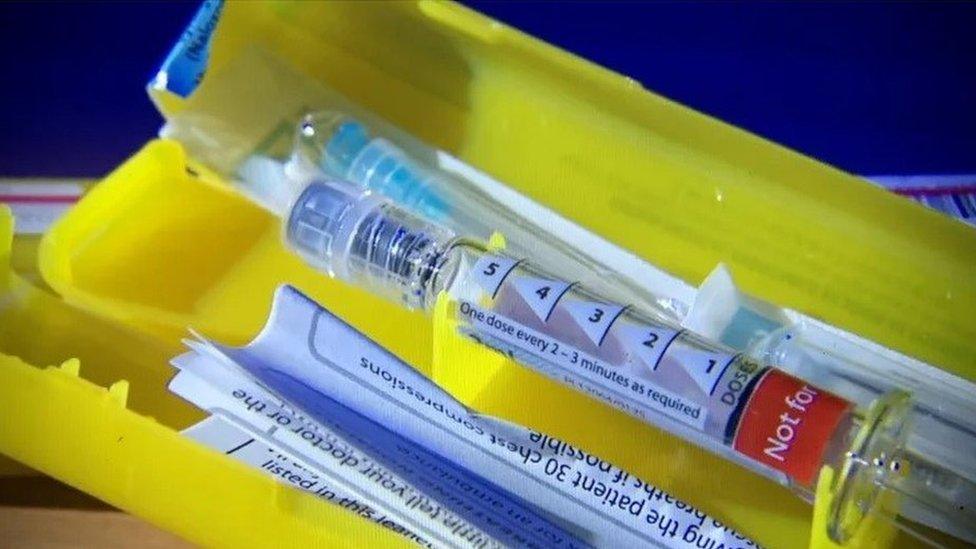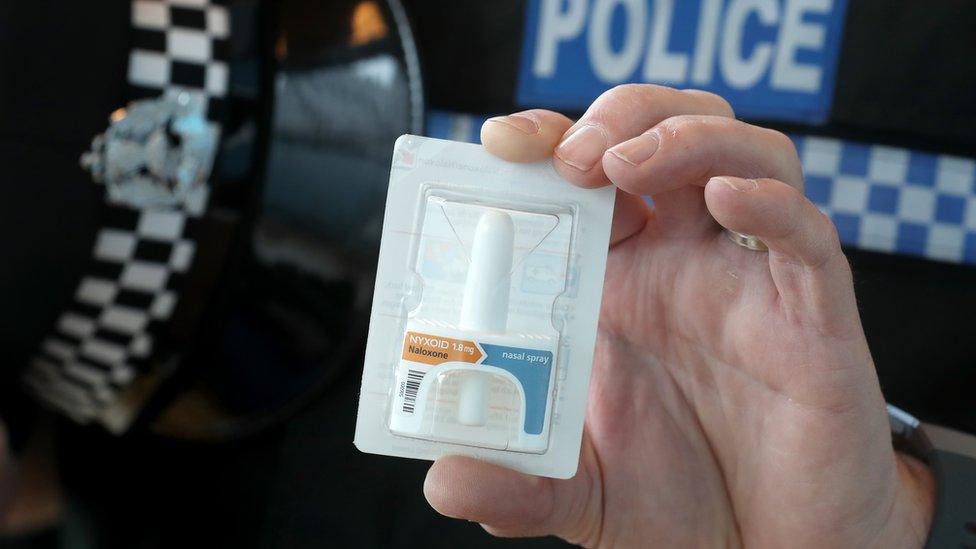Hackney: Councillors trained to use overdose-reversing medicine
- Published

The drug in either a syringe or nasal spray can reverse the effects of an opioid overdose
Politicians in part of London are being trained to help drug users who may have overdosed on opioids.
At least 16 Hackney councillors have been trained in using Naloxone kits, which provide urgent first aid to drug users in the form of an injection.
Drug use service Turning Point gave out kits and advice to the councillors at a recent Town Hall event.
It comes as the council raised concerns about the availability of synthetic opioids.
These are stronger than heroin and can be used to contaminate supplies, posing a risk to people addicted to drugs.
Among those trained to use the life-saving kits is the Green Party's Alastair Binnie-Lubbock, who said he now carries it regularly.
Allow X content?
This article contains content provided by X. We ask for your permission before anything is loaded, as they may be using cookies and other technologies. You may want to read X’s cookie policy, external and privacy policy, external before accepting. To view this content choose ‘accept and continue’.
Cabinet member for health Chris Kennedy said: "In recent years, across the country, we have seen an increase in synthetic opiate drugs including nitazenes.
"In Hackney, we have implemented a proactive approach to reducing harm from these drugs."
Turning Point is doing Naloxone training across the City of London and Hackney for anyone likely to encounter someone who has overdosed on opiates so they "can provide a potentially lifesaving response, ahead of paramedics arriving".
The council says there have been no reported deaths linked to synthetic opiates in the City or Hackney, although there have been reports of fatalities in other parts of the country.
"Synthetic opiates pose considerably more risk than traditional opiates due to heightened impacts on the body. If an overdose happens, using naloxone can save a person's life.
"Hackney operates a local drug information system and professional information network. This allows us to keep up to date on any changes in drug risks across both the local area and nationally. "
The council said this meant professionals working with drug users received alerts about heightened risk so they could give out advice.
- Published25 July 2023

- Published17 March 2022
